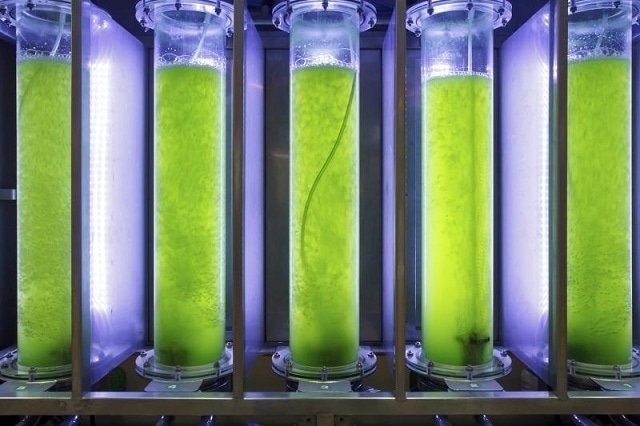Mar 2 2016
The last decade saw a vast amount of research and investment, accompanied with high expectations for algal biofuels. A review from JRC highlighted that despite such immense work, technological options are still in their developing stages, and chief resources for algal growth are still extremely onerous for economically feasible production of algal biofuels. Commercial, large-scale algae-to-biofuels facilities were not implemented until the end of 2015.
 With a 7% EU cap on the final consumption of biofuels produced from agricultural crops, algae have received closer attention in the last decade as a source of advanced biofuels.
© toa555, Fotolia
With a 7% EU cap on the final consumption of biofuels produced from agricultural crops, algae have received closer attention in the last decade as a source of advanced biofuels.
© toa555, Fotolia
The authors of this review explain that the key hindrances of large-scale deployment of micro- and macro-algae include increasing demands of chief resources for algal growth, such as water, CO₂, and nutrients. Some of the other barriers include the difficulty to manage specific species comprising of high productivity content in outdoor culture, high energy needs, and the costs of conversion into biofuels and algal production. It is also difficult to identify land with the appropriate characteristics for the growth of algae. There is a number of technical challenges for cost effectiveness and to scale up up pilot/lab projects. It is because of this that the currently used method to convert algae into biofuels is still in an undeveloped state.
The review presents an updated status of several technology options to exploit algae as feed stocks for biofuel production. It presents a comprehensive overview of the latest improvements on favorable legal biofuels production pathways, concerning technological development, limitations and opportunities. JRC scientists examined the key assumptions, modeling techniques, and the outcome of the life cycle assessment (LCA) of existing algal biofuels pathways.
The scientists concentrated on the main parameters influencing the energy and greenhouse gas emissions balances. They have also reported a comparative study on the performance associated with algal biofuels pathway and that identified for conventional fossil fuels. The findings may help to detect research opportunities, priorities, and limitations of their total effectiveness and potential environmental risks.
The lack of detailed impact assessments makes it important to thoroughly evaluate the environmental impacts and techno-economic challenges of algae-to-fuel strategies, before executing system integration strategies in the algal biofuels industry.